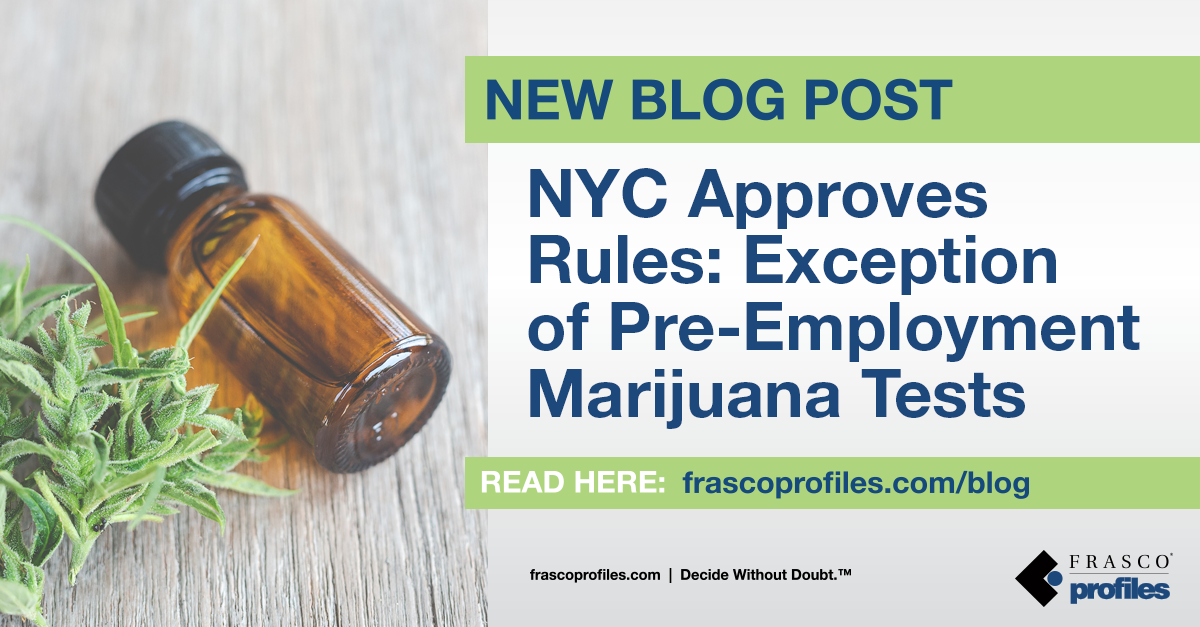As of May 10, 2020, the city of New York has prohibited employers, labor organizations, and employment agencies from requiring job applicants to submit to a marijuana drug test as a condition for employment.
The new law is in response to an increasing trend by states legalizing marijuana for both medical and recreational use. Employers operating in these states have relied on the fact that marijuana is still classified as a schedule I narcotic federally, and a positive marijuana drug test would violate the company’s 100% drug free workplace policy.
Now the pendulum is swinging the other way, as courts are now allowing certain rights to marijuana users and holding employers accountable to comply with federal and state disability laws when challenging medical marijuana users. This has led to more states/cities/municipalities extending certain employment protections to off-duty marijuana users.
The New York city law however does provide certain exceptions for “safety sensitive” positions employers hire for which include:
• Positions in law enforcement.
• Certain construction jobs (as defined in the law);
• Any position requiring commercial drivers’ license.
• Positions requiring the supervision or care of children, medical patients, or vulnerable persons (as defined by the law); and
• Positions with the “potential to significantly impact the health or safety of employees or members of the public,” as determined by rules promulgated by the City.
On June 16th, the New York City Commission on Human Rights approved new rules clarifying “safety sensitive” positions that are exempt from the law. Positions identified as “potential to significantly impact the health or safety of employees or members of the public,” as determined by rules promulgated by the City. On June 16, 2020, the Commission issued rules that set out the types of positions that fit within this exception.
Specifically, a position qualifies if:
• The position requires that an employee regularly, or within one week of beginning employment, work on an active construction site.
• The position requires that an employee regularly operate heavy machinery.
• The position requires that an employee regularly work on or near power or gas utility lines.
• The position requires that an employee operate a motor vehicle on most work shifts.
• The position requires work relating to fueling an aircraft, providing information regarding aircraft weight and balance, or maintaining or operating aircraft support equipment; or
• Impairment would interfere with the employee’s ability to take adequate care in the carrying out of his or her job duties and would pose an immediate risk of death or serious physical harm to the employee or to other people.
New York City employers who depend on the “safety sensitive” carve-out would be best served to consult with an employment/labor law attorney, to ensure the position in questions meets the new definition set forth by the NY City Commission. Employers should also revisit their drug screening policies to address when an employee or applicant tests positive for marijuana.
If you have any questions or concerns about your drug screening program, don’t hesitate to contact us at (800) 820-9209. We are open and happy to assist Monday – Friday, 6:00 am – 5:30 pm PST.





